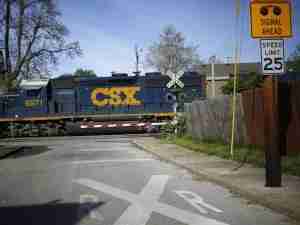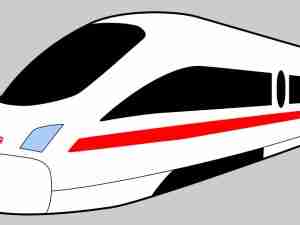Perhaps there was some significance in the fact that this year's edition of the intermodal transportation industry's leading U.S. conference and trade show was held a mere one-mile dray from the gates of Disneyland.
 By the time they arrived at the Anaheim Convention Center for the Nov. 14-18 event, most of the more than 2,000 industry leaders taking part in the Intermodal Association of North America's 27th Intermodal Expo and the National Industrial Transportation League's 102nd annual meeting and TransComp Exhibition were, metaphorically, reeling as if they'd just stumbled off a gut-wrenching ride on Disney's Space Mountain roller coaster.
By the time they arrived at the Anaheim Convention Center for the Nov. 14-18 event, most of the more than 2,000 industry leaders taking part in the Intermodal Association of North America's 27th Intermodal Expo and the National Industrial Transportation League's 102nd annual meeting and TransComp Exhibition were, metaphorically, reeling as if they'd just stumbled off a gut-wrenching ride on Disney's Space Mountain roller coaster.
Throughout the conference, the attendees did receive some encouragement, but they readily recognized that Tomorrowland on the industry's Main Street U.S.A. will still seem like Adventureland and that they'd better buckle up, because the coming year will likely have as many bumpy waggles as the Matterhorn Bobsleds.
From Wall Street analysts to industry executives, conference speakers reminded Expo-goers of the obvious: The challenges will not go away like woes dispensed with a tap of Tinker Bell's magic fairy wand.
A trio of financial experts who follow the transportation industry concurred that recovery will be slow. One of them ' John L. Barnes III, managing director of equity research for the transportation sector at RBC Capital Markets ' said he is 'just a little bit nervous that we're in for a 'W' in freight volumes,' meaning a 'double-dip' with volumes going back down after they rise.
Jason H. Seidl, director of Dahlman Rose & Co. LLC, said the coming year will see the freight industry have to respond to such trends as moves by shippers to cut miles from their supply chains by using closer ports and distribution centers and the use of reengineered packaging that aims to put more product in a container.
Thomas R. Wadewitz, analyst for airfreight and surface transportation at J.P. Morgan, cited environmental concerns as one of the reasons why he expects increasing amounts of freight to be moving via intermodal rail as opposed to by trucks. He also noted multibillion-dollar infrastructure investments being made by U.S. railroads.
Ron Widdows, president and chief executive officer of NOL Group and chairman of the World Shipping Council, said lack of sufficient spending by the federal government on transportation infrastructure projects is something 'everyone in this room should really be agitated about.'
 Widdows said the multibillion-dollar losses suffered by ocean carriers will continue 'well into 2010 if not longer,' adding that lowering of rates by carriers 'driven by desperation' have only made matters worse.
Widdows said the multibillion-dollar losses suffered by ocean carriers will continue 'well into 2010 if not longer,' adding that lowering of rates by carriers 'driven by desperation' have only made matters worse.
'There is no doubt there will be failures,' Widdows said of ocean carrier companies. 'There will be bankruptcies.'
While Widdows said he is seeing a 'flight to quality' by shippers who spurn ridiculously deflated rates in making their choice of carrier services, he added that increased fuel prices are likely to cause all carriers to slow ship speeds, 'which means transit time are going to be degraded.'
Martin Bernstein, director of transportation excellence and postal affairs for 1,109-store retailer J.C. Penney Co. Inc., which imports from overseas more than 40 percent of the $19 billion a year of merchandise it sells, said corporate logistics professionals are viewing reliability and predictability of service as just as important as competitive pricing.
'Ocean freight is not just a commodity,' said Bernstein, adding that importers' strategies for success should include selection of solid strategic partners and collaboration with carriers. 'The predictabilit







